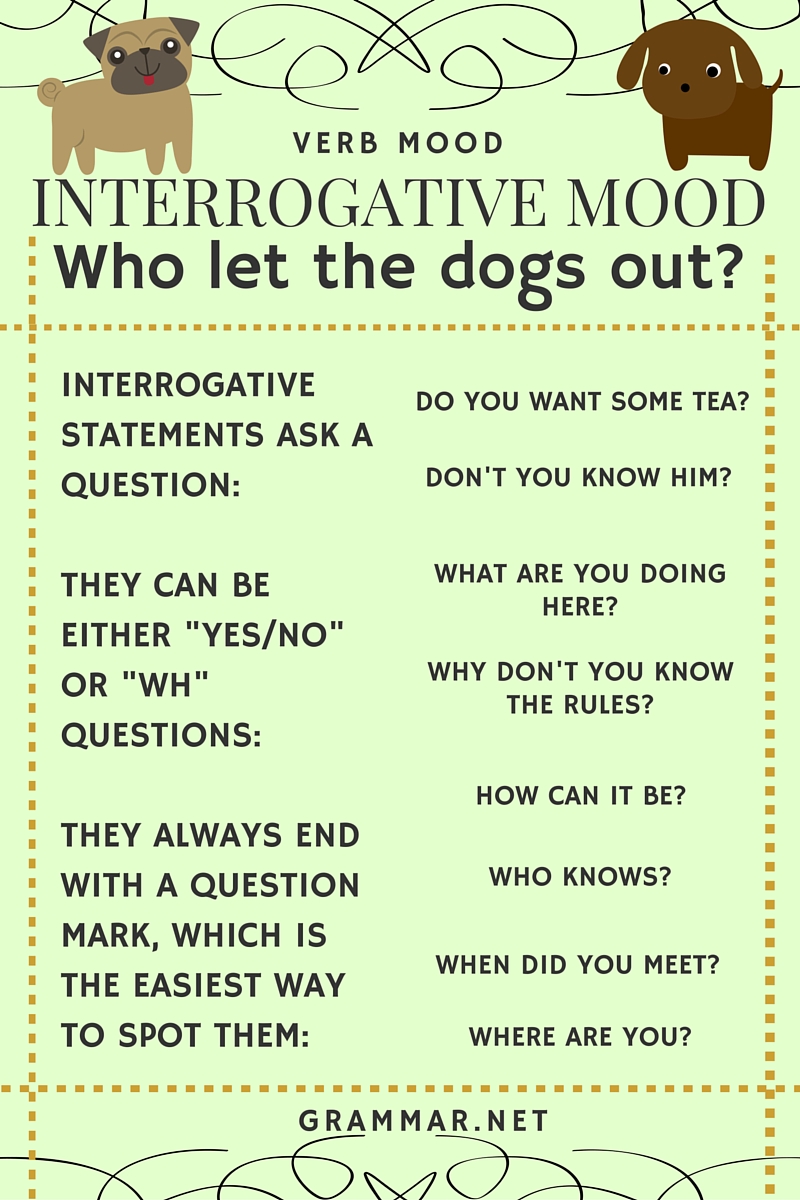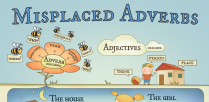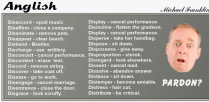Sentences in English express moods through the verb.
Verb moods are indicative, imperative, subjunctive/conditional and interrogative.
Interrogative Mood
Interrogative statements ask a question. They always end with a question mark, which is the easiest way to spot them. A way to remember is to think of action movies, where criminal suspects are “interrogated” in an “interrogation room.”
“Who left these flowers on my desk?”
“What time is it?”
“How can I possibly thank you enough?”
“Can we go with when you leave?”
There is a habit in social media and so forth to combine a question mark with an exclamation point. This is not correct, and neither is multiple question marks or multiple exclamation points.
“Can I have ice cream please?!” No.
“I want ice cream!!!” No!
“Can I have ice cream please? Give me ice cream!” Yes.
Other Examples of Verb Mood
Indicative
The majority of English statements are in the indicative, which is used to show a fact or a reality. In other words, it “indicates” something.
“Penny is wearing a purple dress.”
“The are ten cows in the back pasture.”
Imperative
Imperative is a command or instruction. One way to remember: “It is ‘imperative’ to remember the imperative mood.”
“Go to bed.”
“Please give me the keys to the car.”
Subjunctive
This statement shows a situation that is not a reality: a possibility, a wish or something hypothetical that might not ever happen.
“I would have loads of chickens if I were a rich man.”
“We would have a lot of fun in zero gravity if we went into space.”
Conditional
This statement shows what may happen under certain “conditions.”
“I’m going home if Bob starts singing.”
“Fred is going to buy a new car if he gets his raise.”








